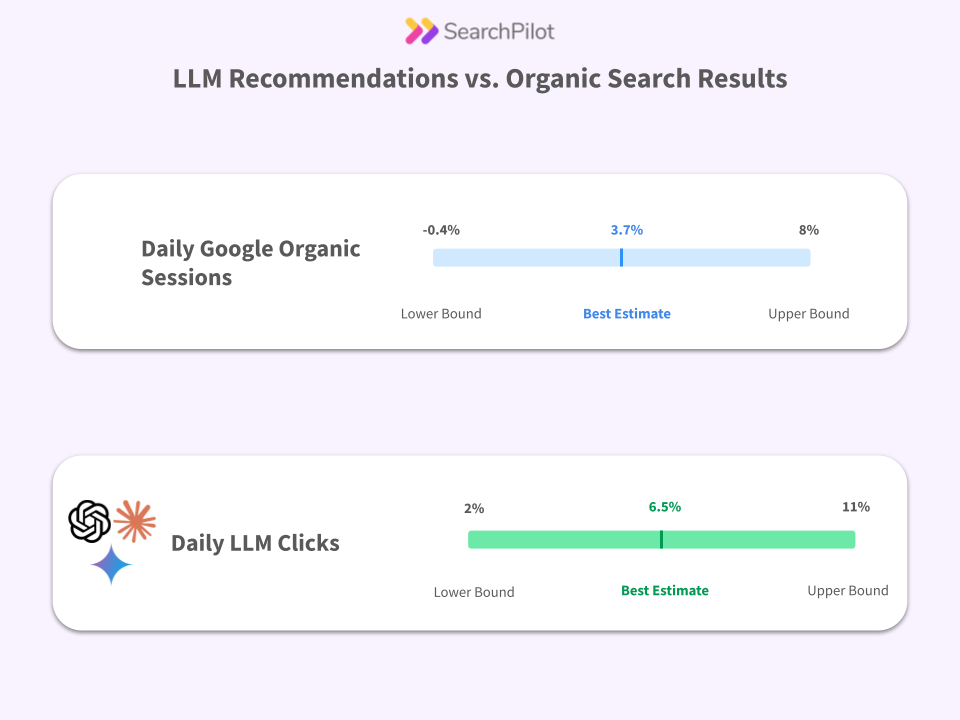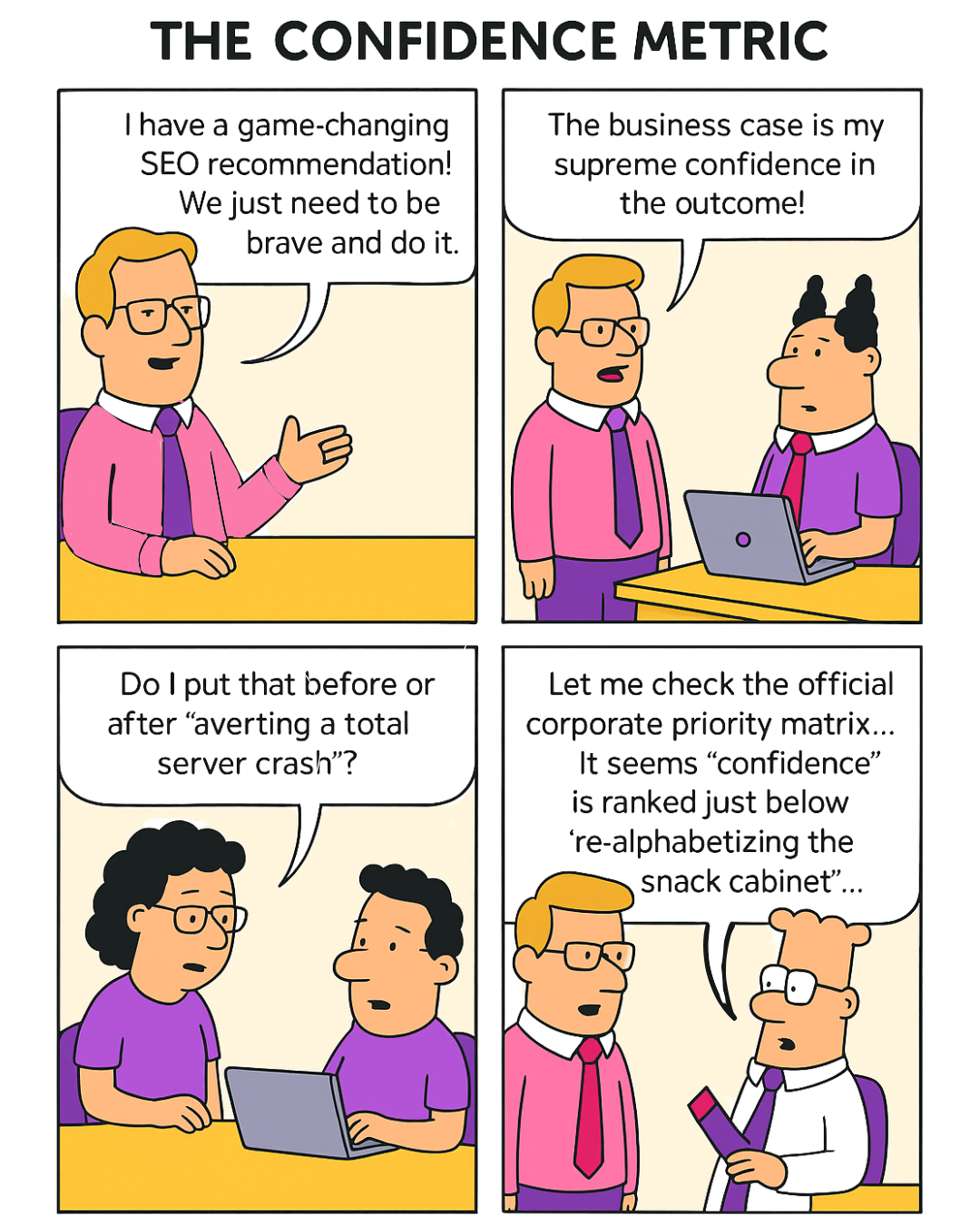I’m constantly surprised at how often Google is underestimated in terms of importance and size.
Rand Fishkin, an old friend and former CEO of SEOmoz (now Moz), now leads SparkToro, a company doing fascinating work adjacent to the search space.
You might have seen their recent research - Where web users spend time vs. where traffic referrals originate - which has stirred up some controversy. I wanted to highlight some of this data because it underscores important insights about Google's size and scale and the opportunity of search in general.
The extraordinary dominance of search as a web traffic source
The main finding from Rand’s research that I want to explore is the sheer amount of traffic that Google influences. While people spend more time on the likes of Instagram, Facebook, and YouTube, it’s Google that is driving the most traffic to the rest of the web. If you’re a specialist in search, this information won’t be a surprise to you. But if you’re new to the search space, or it’s a field you work alongside, it might be a bit of an eye-opener.
However, what surprised me is that Bing, combined with the rest of Microsoft, ranked in second place, even above Facebook, Reddit, and Twitter. You can also see search engines like DuckDuckGo coming in above Instagram, Amazon, and LinkedIn.

This data underscores that search remains the dominant way people find websites—a trend that isn’t changing anytime soon. This supports an argument I’ve made multiple times: At SearchPilot, our focus is SEO because search is the biggest channel for customer acquisition for the large websites we work with. That applies whether it’s e-commerce, travel, real estate, jobs, media, listings, or local.
Yet despite its importance, SEO remains the least understood (and often the most underinvested) channel, and that’s where we can make a big difference.
SEO isn’t dying, it’s growing
I've been in the SEO industry since 2005, and from the start, there has been a recurring theme that ‘SEO is dead’ or ‘SEO is dying’. At first, this stemmed from a combination of wishful thinking about short-lived manipulative tactics, and the belief that web developers would end up incorporating all SEO best practices into their work from the outset.
The first real wave of panic I remember was in the late 2000s with the rise of social media. When Facebook released its newsfeed and Twitter emerged in 2006, there was a widespread belief that social traffic would cannibalize search traffic.
The fear was that people would start asking their friends questions instead of searching for the answer on Google. However, it turned out that social media referrals were largely incremental traffic to websites on top of search. While consumers do ask their network questions on social media, search volume has continued to grow year on year. Despite different waves of panic, this has been the case throughout Google’s existence.
At the moment, there is widespread concern about search quality. Some argue that the quality of search results has degraded when compared to the past. I was recently a guest on a podcast with Dan Shure, and we discussed how difficult it is to judge from the outside whether search quality has truly declined. If it has, is it because Google has worsened or because the overall quality of internet content has decreased?
This isn't the first time such concerns have arisen. Back in 2009, there was a similar uproar about declining search quality. Google had incentivized the massive expansion of the internet through AdSense, leading to the creation of low-quality, database-driven content and thin pages. For example, websites generated pages for out-of-stock products or real estate regions with no listings, and Google indexed them, contributing to lower quality.
Scraper sites outranking original content was also a significant issue. For instance, Stack Overflow’s content was aggressively scraped, and lower-quality sites often outranked the originals. This led Google to develop its Panda and Penguin, which significantly improved search quality (and might have been Google’s crowning glory to date).
Despite these issues, search has continued to grow and evolve. The data from SparkToro reinforces the fact that search continues to be a dominant and highly valuable channel, particularly for customer acquisition and attracting high-value traffic.
The unimaginable size and opportunity of Google
Google is far larger than we can truly comprehend. The fact that we occasionally encounter low-quality search results doesn’t reflect the average quality. Recently released internal Google data, especially from their antitrust trials, shows that the perceived decline in search quality isn’t universally true. The story of Panda and Penguin updates highlights Google’s strong incentives to solve these issues, and I wouldn’t bet against them doing it again.
Historically, Google has effectively managed low-quality content in search results and adapted to high-growth web usage and new traffic sources like social media. This adaptability suggests that search is ready to evolve to meet its next challenge. In a Hard Fork Podcast interview, Google CEO Sundar Pichai mentioned that Google continues to send increasing amounts of traffic outside its own platforms year after year. This likely includes both organic and paid search, indicating growth despite the rise of zero-click searches and search features.
Perceptions vs. reality in SEO investment
The scale and opportunity of the search remain huge, but we must be cautious. Perception is as important as reality when it comes to SEO investment. Despite its importance, SEO suffers from a perceived lack of measurability compared to other digital channels. The allure of new and shiny technologies can also distract executives and marketing leaders, causing them to question the relevance of search.
An argument that resonated with me recently is, “What matters more than whether AI can do your job is whether your boss thinks AI can do your job.” This sentiment applies to SEO as well. If there’s a perception that search quality is declining or that emerging technologies like large language models will diminish the future growth of search traffic, investments in SEO might be cut.
At SearchPilot, we benefit from a growing demand for measurable and accountable SEO, but the broader challenge remains. Leadership’s perception of organic search’s value and future potential is extremely important. Rand’s data from SparkToro helps counter negative perceptions and highlights search’s continued dominance and growing opportunities.
Debunking predictions of SEO’s demise
I wanted to touch on the other side of the discussion, too. SEO expert Eli Schwartz has made some bold predictions, warning of an imminent “SEO apocalypse”.

While I respect Eli’s work, I never felt this scenario was likely. In fact, I’m very optimistic and have a bullish stance on Google and search in general. I simply don’t see a world where Google cuts off 60% of organic search traffic. Not only do I not think this will happen in the next quarter, but I also don’t see it happening in the next three to five years. Predicting further out is always challenging, but here’s why I’m confident.
Google faces several significant monetization challenges. One key issue is determining the optimal placement of ads and aligning them with user preferences. Is a chat interface the right approach, or do users prefer visiting websites for their answers? I believe that clicks out from Google searches will remain important, as it aligns with Google’s ethos and culture of driving significant traffic to the web.
The usefulness of search is also tied to providing the right interface for users. Searches are often not chats, and the chat-based approach may not always be suitable. If Eli’s prediction were correct, it would not only pose a problem for marketers but also create a significant issue for Google. The company relies heavily on web content and content creators to generate material that feeds into its search results and generative experiences. The importance of this content ecosystem cannot be overstated, as it is fundamental to Google’s operations and success.
But what if I’m wrong? What if organic search traffic declines faster and more significantly than I anticipate—not by 60% in a quarter but perhaps by 5-10% over three years? Even in that scenario, the opportunity remains immense. For large websites that rely heavily on search traffic, search cannot be easily replaced by other long-tail referrers.
Taking advantage of Google’s scale with advanced SEO techniques
So what’s the TL;DR of all this? Google is still huge (and growing). Search isn’t going anywhere. And there is opportunity for those who know how to find it.
At SearchPilot, we have some seriously advanced behind-the-scenes tools that we use to secure winners for our clients. These include features we've never shown before, such as different confidence intervals and methods for detecting and removing outliers.
In this article on the Long Room, we lift the curtain on how we do these things and show you how they can benefit your SEO tests. It’s a great read for anyone who wants to understand what we do and how it can help you.
If you want hot-off-the-press test results in your inbox every fortnight, or if you’d like to take SearchPilot for a test flight, get in touch with the team today.



